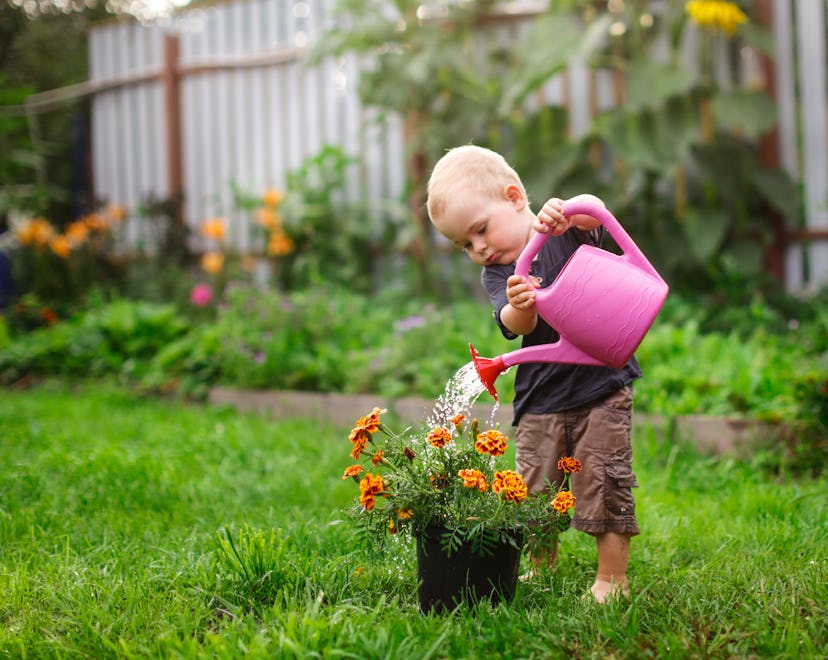Snapdragons come in just about every color of the rainbow, and their flowers form in stalks. They bloom most in full sun to partial shade and like about one inch of water added to their soil per week, per The Spruce. Other than that, set ‘em, forget ‘em, and enjoy ‘em.
Flowers just don’t get easier to grow than lantana. They love to sit in full sunshine, and like their soil moist when first planted but are pretty drought tolerant once they’re used to their new digs. They’ll attract bees and butterflies to benefit all your other blooms too.
Shutterstock
Who wouldn’t want to walk outside and pick their own fresh peony bouquet? These delicate flowers actually grow on a hardy bush that can handle full sun and don’t need fertilizer. Just shelter them from wind so their heavy blooms don’t break off.
Zinnias have gorgeous flowers in any hue and size you could want, and they bloom all summer until the first cold snap of autumn. Just plant and keep their soil moist, adding fertilizer if you want to see even more flowers pop up.
Shutterstock
Black-eyed Susans are a native wildflower that blooms from June to September, and adding them to your garden is basically fuss-free. They do great in partial to full sun and a standard potting soil, and should be watered any time their dirt dries out.
Begonias come in many varieties, each one with its own preferences on how much sunlight and water it needs to thrive. Wax begonias are the most common kind used in outdoor gardens and containers, and they can handle shade and sun alike.
Catherine McQueen/Moment/Getty Images
Reds, pinks, and whites — sedum adds all three to any garden it graces, and requires minimal effort. They grow best in full sun and sandy soil that other plants might find not nutritious enough. After that, they only need to be watered every few weeks.
Marigolds are one of the easiest flowering plants to grow and a natural pest repellent. They can withstand full sun and are drought tolerant, blooming bright orange and yellow all summer long. When the blooms turn brown, just pinch them off and new ones will replace them.
Viktoriia Fomenko / EyeEm/EyeEm/Getty Images
Impatiens come in bright white and vibrant pink or fuchsia hues, so if you’re looking for color, they’ve got it. They grow best in shady areas, and do equally well planted in-ground or in a container. They like moist soil, so water frequently.
